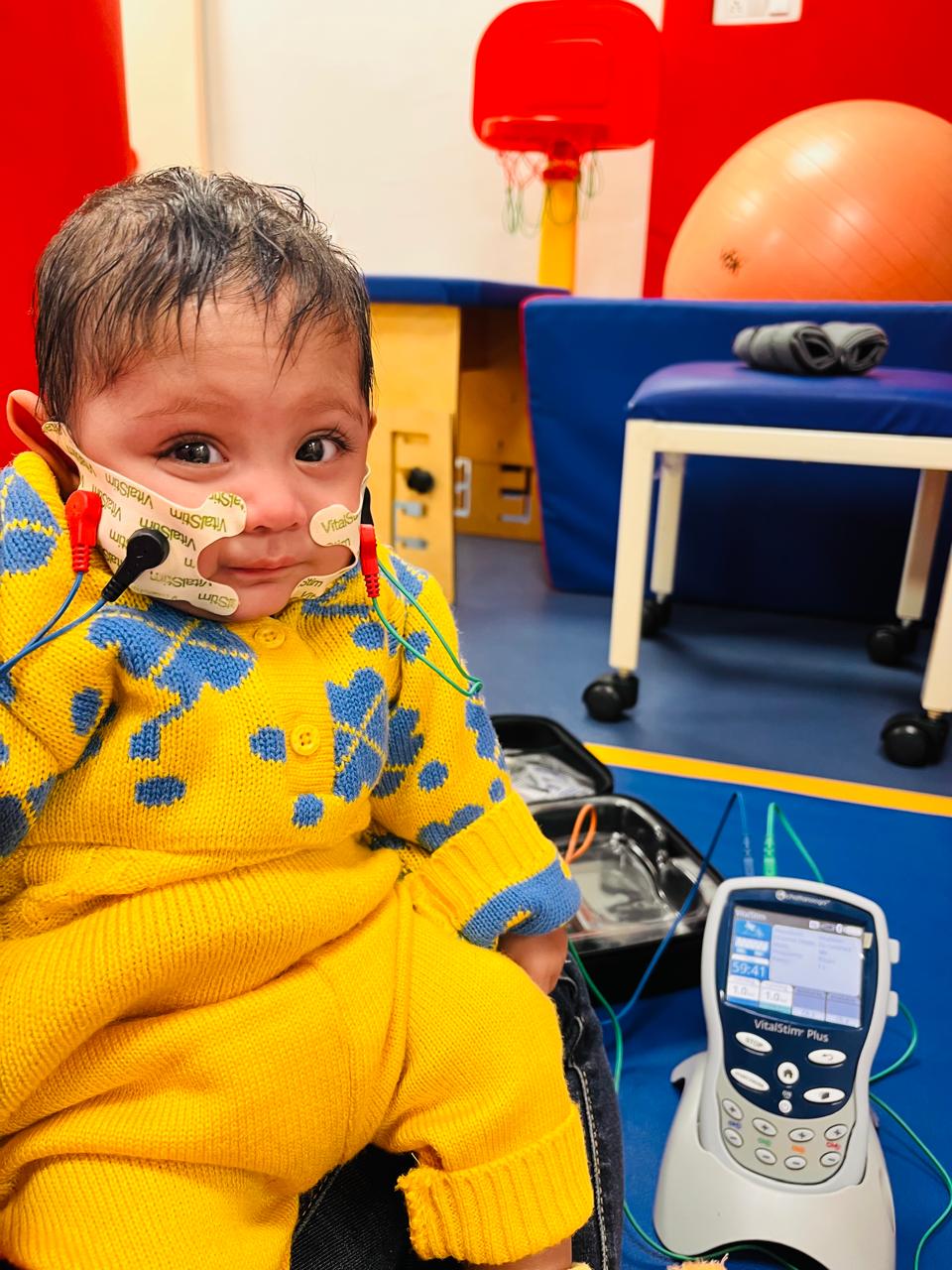Infants and Pediatric Feeding Therapy MileStone Therapy
At Milestone Therapy, we understand the critical importance of healthy feeding habits for infants and children. Pediatric Feeding Therapy is designed to help children who have difficulties with eating, swallowing, or transitioning to solid foods. Our approach is tailored to each child’s specific needs, ensuring a comprehensive plan that promotes safe and enjoyable feeding experiences.

What is Infants and Pediatric Feeding Therapy?
Infants and Pediatric Feeding Therapy is a specialized form of therapy that addresses difficulties children may face while eating, drinking, and swallowing. These challenges can include issues with breastfeeding, bottle-feeding, transitioning to solids, texture aversions, choking, gagging, or delays in feeding milestones. Our therapy focuses on improving both the physical and behavioral aspects of feeding, fostering healthy eating habits and positive experiences for both the child and family.
At Milestone, we focus on:
Oral Motor Development
Helping babies and children develop the strength, coordination, and control necessary for safe and efficient feeding.
Texture and Sensory Tolerance
Gradually introducing a variety of textures and flavors to expand a child’s food acceptance and sensory tolerance.
Behavioral Strategies
Creating positive associations with mealtimes to reduce food refusal and anxiety.
Swallowing and Safety
Ensuring safe swallowing practices to prevent choking or aspiration.
Family Education and Support
Equipping families with practical strategies and techniques to support their child’s feeding at home.

Why is Infants and Pediatric Feeding Therapy Required?
Feeding challenges in infants and children can stem from a variety of causes, including medical conditions, developmental delays, or sensory sensitivities. Feeding Therapy is essential because:
- Feeding difficulties: It can affect growth and nutrition, leading to concerns about weight gain, growth delays, and malnutrition.
- Long-term feeding issues: Can result in behavioural problems, such as food aversions, anxiety, or an unwillingness to try new foods.
- Developmental delays in Feeding Skills:Difficulties in transitioning from breast or bottle-feeding to solid foods, which is a normal developmental milestone.
- Oral Motor Weaknesses:It can make swallowing and chewing difficult, causing safety concerns like choking or aspiration.
How Our Program Works
At Milestone Therapy, our Infants and Pediatric Feeding Therapy program is individualized to meet each child’s needs. Here’s how we guide families through the process:
- Comprehensive Assessment: We begin with a thorough evaluation of your child's feeding history, including medical conditions, feeding challenges, and any behavioural issues. This helps us understand the root cause of the feeding difficulties.
- Personalized Therapy Plan: Based on the assessment, our therapists develop a customized feeding plan that targets your child’s specific needs—whether it's improving oral motor skills, introducing new textures, or addressing anxiety or sensory sensitivities.
- Therapeutic Techniques: Our therapists use a variety of techniques, including oral motor exercises, sensory play, feeding drills, and behavioural strategies, to address specific concerns. We may also involve parents in the sessions to ensure the techniques are implemented consistently at home.
- Gradual Introduction to New Foods: For children with texture aversions or limited food acceptance, we use a gradual approach to expand the variety of foods your child can tolerate, creating positive experiences with eating.
- Monitoring and Progress Tracking: Regular follow-ups and adjustments to the therapy plan ensure that we are making progress toward feeding goals, whether that’s independent eating, improved nutrition, or overcoming food aversions.
Who Can Benefit from Infants and Pediatric Feeding Therapy?
Pediatric Feeding Therapy can benefit children who are experiencing a range of feeding difficulties, such as:
- Infants with breastfeeding or bottle-feeding difficulties
- Toddlers and children with aversions to certain textures or tastes
- Children with oral motor issues
- Children with conditions like reflux, cerebral palsy, or cleft lip/palate
- Children with sensory processing difficulties
- Children with feeding-related behavioural issues